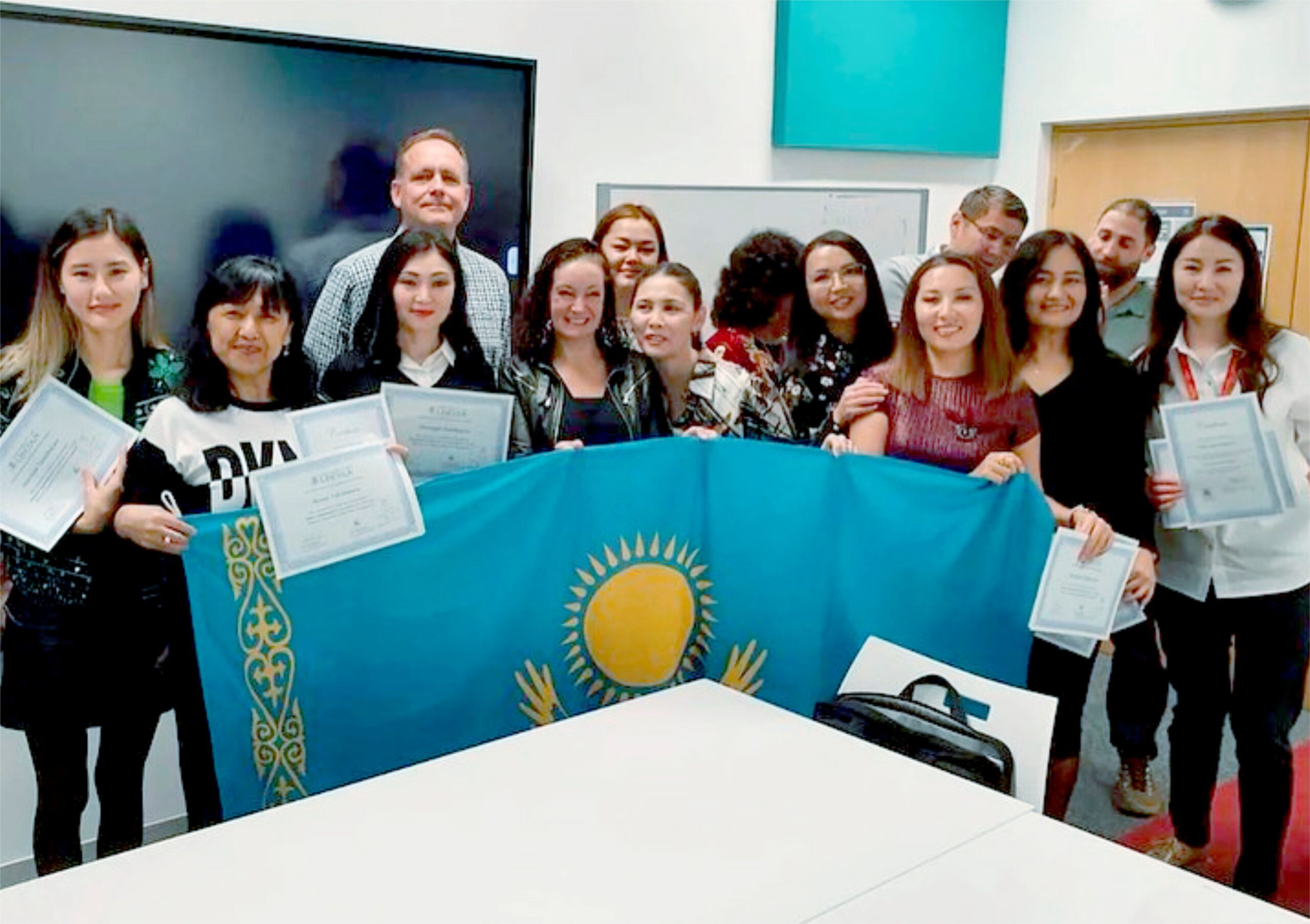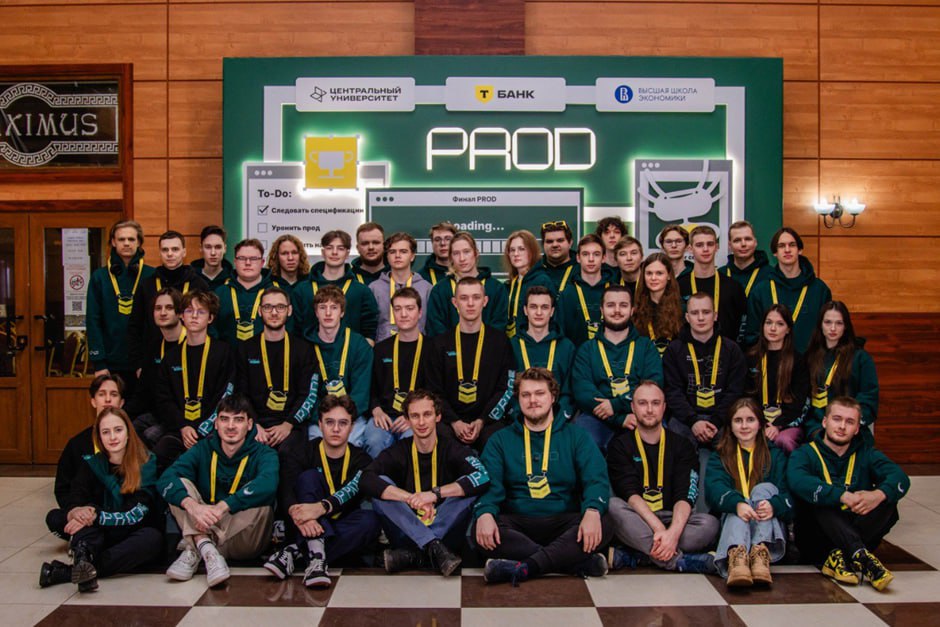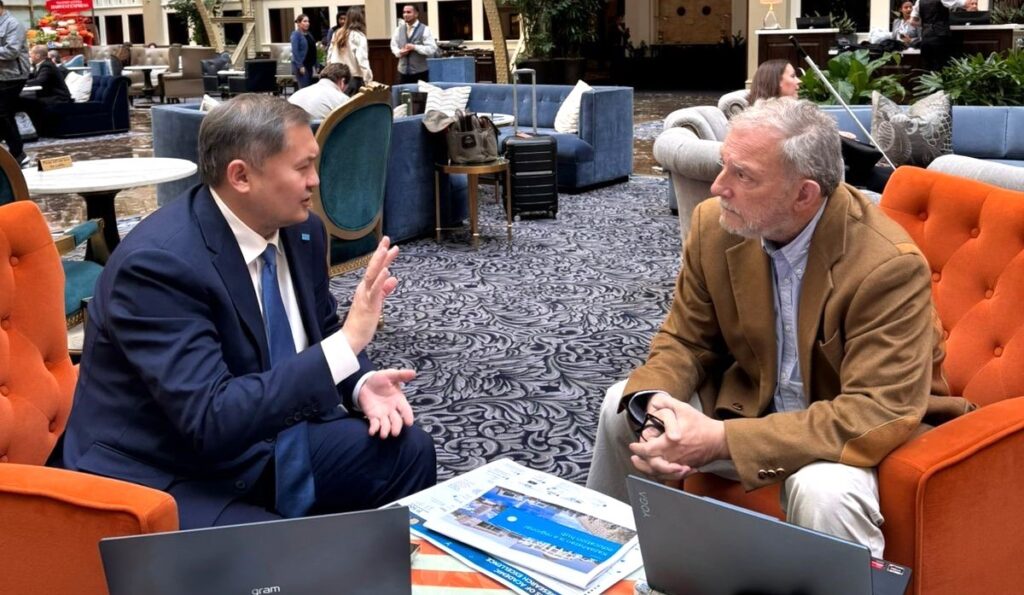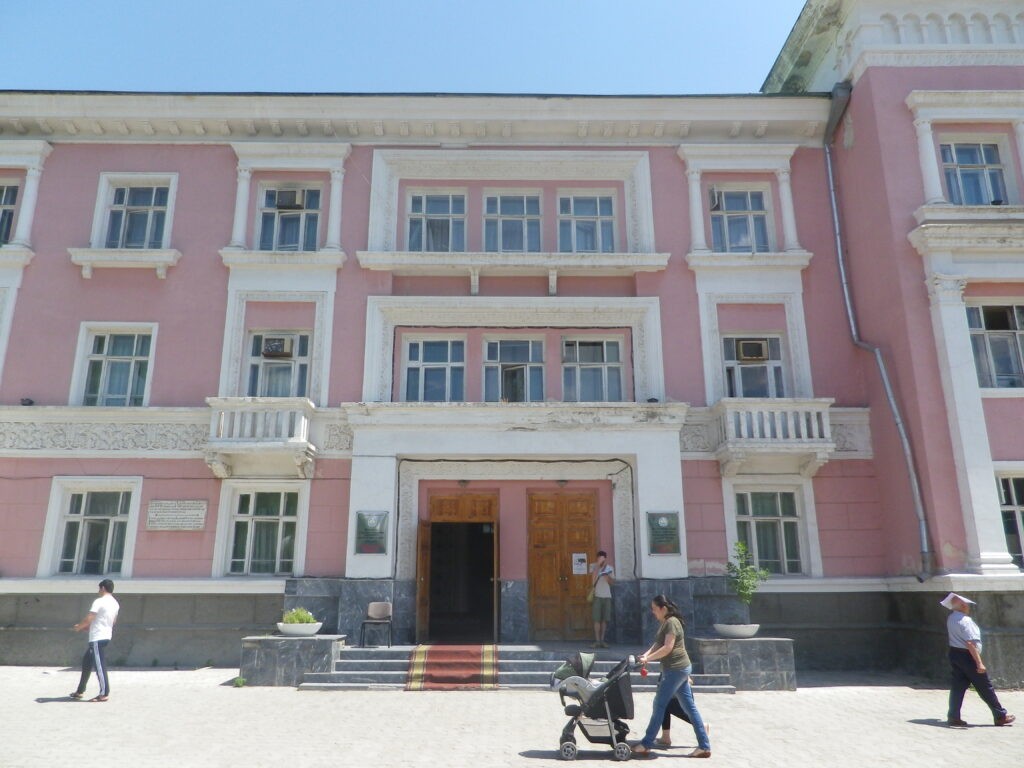In 1993, Nursultan Nazarbayev, the first president of Kazakhstan, established the Bolashak (‘Future’ in Kazakh) International Scholarship. Its goal was to help gifted Kazakhstani youth obtain a high-quality foreign education. However, the program is currently mired in scandals with alarming regularity.
Of course, most of these clickbait stories are minor — such as a 2022 incident with the famous singer Dimash Qudaibergen. He was selected for the Bolashak Program and went abroad before changing his mind. He tried to transfer the scholarship to someone else but was forced to return the money to the state.
Still, several cases indicate that behind the scenes at the Center for International Programs, which administers the scholarship, something is not right. So far, no one has intervened – the program is still running – but the latest scandal could attract the attention of Kazakhstan’s president Kassym-Jomart Tokayev. And he has already expressed dissatisfaction with some of the conditions of the scholarship.
Getting the president’s attention
Let’s unpack the current scandal, which has to be extinguished by a senior official such as the minister of education and science. Kazakhstani Natalya Vorobyova recorded a video message to Tokayev, saying that in 2016, she and her colleague Makpal Daribaeva acted as debt guarantors for her former colleague Valeria Gavrilenko, who had completed the Bolashak Program. According to Vorobyova, Gavrilenko “in 2019, conspiring with the center’s employees… illegally withdrew two apartments [that had been pledged to the center] as collateral and went off to live in the UK.” Now, her debt – graduates of the program are required to work in Kazakhstani government agencies for 3-5 years (depending on the region) – has to be repaid by the guarantors, i.e., by Vorobyova and Daribaeva. They owe about KZT30 million ($60,000).
The press service of the Center for International Programs explained that since Gavrilenko evaded paying off the debt, the agreement transferred it to the guarantors.
Just days later, on May 30, Sayasat Nurbek, who heads Kazakhstan’s Ministry of Education and Science, intervened, saying that an agreement had been reached with Gavrilenko whereby she would pay off her debt, with a corresponding agreement already signed by her.
“Since Gavrilenko took it upon herself to fully return the money, an agreement was signed with her, and she has begun to pay back the money. Accordingly, the claims against the guarantors are withdrawn. Nevertheless, we were forced to initiate a case against all three obligation-bearers. We were forced to do this because they are jointly liable under the law. If Gavrilenko pays the full amount, the claims against the guarantors will be dropped. Unfortunately, they seem to have been advised incorrectly. They felt threatened that they would be forced to pay full damages. Today, we are concentrating all claims on Gavrilenko,” Nurbek said in the Senate as he was answering questions from journalists.
As for the third party in this scandal – which, according to the minister, is also responsible – it is the former president of the Center for International Programs, Zhanbolat Meldeshov, under whose watch Gavrilenko had the opportunity to remove the property as collateral and did not have to work off the debt after studying in the UK, where she, in fact, stayed to live. Meirzhan Alpysbay and Askar Sharambaev, who served as vice president and head of the legal department at the center, respectively, also signed the notice about the collateral being removed.
Meldeshov was already the culprit in a high-profile incident. In 2017, a complaint against him was sent to the Presidential Administration. He was accused of firing center employees to make room to hire his acquaintances and treating staff rudely, and he got a severe reprimand from the education minister.
“People of the future”
The Kazakhstani public has an overwhelmingly negative attitude toward the Bolashak Program, seeing it as a way for powerful bureaucrats and the ruling elite to send their relatives to study at prestigious western universities at the state’s expense. This discriminatory attitude is attributable to the fact that in the ranks of Bolashak graduates, there are people like Bauyrzhan Baybek, the former akim (head of the city administration) of Almaty and the son of Nazarbayev’s classmate, and Gabidullah Abdrakhimov, the ex-mayor of Shymkent who started the meme “work in Kazakhstan, relax in London.” And the list goes on. Thirteen thousand Kazakhstanis have been educated under the Bolashak Program since it was established 30 years ago, and there is bound to be a certain percentage of rich kids (mazhory) among them. The same is true of “defectors” – if you believe the official statement of the Center for International Programs press service, less than 1% of Bolashak recipients did not fulfill their government service obligation or did not complete their studies.
The Bolashak Scholarship provides an opportunity for gifted Kazakhstanis to study at the 70 highest-ranked foreign universities at the expense of the state. The need for such a program became evident with the collapse of the Soviet Union and the outflow of professionals abroad. As early as November 1993, Bolashak was launched.
A few years ago, political scientist Daniyar Ashimbaev, who authored the book Who is Who in Kazakhstan, offered his explanation for society’s prejudiced attitude toward “Bolashakers”:
“By the mid-2000s, more and more program graduates were back in the country and were called to serve in government. But here, a mistake was made. Firstly, Bolashakers were seen as a whole group and not divided by specialization. Secondly, this attitude caused a kind of ‘messianic complex’ within the first waves of Bolashakers, when they began to behave like ‘people of the future’ with ‘youthful maximalism.’ Thirdly, they went right away to the upper echelons of power (at one point, there was an initiative to have only two deputy ministers at each ministry, and one had to be a graduate of the program), with no attention being paid to the fact that the majority had no experience either in the civil service or business. This campaign provoked a negative attitude toward Bolashakers, and it took several years to find compromise solutions.”
Besides the Bolashak Scholarship, there is also an association of the same name, created in 2001 by program graduates. In 2008, it was headed by Bauyrzhan Baybek, the former mayor of Almaty. Ashimbaev attributes the abovementioned “compromise solutions” to Baybek, yet in fact, the further strengthening of Baybek gave Bolashakers mostly unfounded ambitions, as if they were the ones who would soon rule the country. Incidentally, one Bolashak alumnus is the notorious Kuandyk Bishimbayev, over which Nazarbayev himself once lamented.
“I feel very sorry for ex-Minister Kuandyk Bishimbayev, to be honest – [we] educated him, put him through Bolashak, and pinned our hopes on him. And this is how it ended up,” Nazarbayev said in 2018 at an extended government meeting on high-level corruption.
Are changes coming?
What about Tokayev’s dissatisfaction with the Bolashak Program? In 2008, Nazarbayev initiated, as they called it then, a “qualitative expansion” of the scholarship: the age limit for applicants was significantly increased, and quotas were introduced for civil servants.
In 2019, at an extended government meeting on improving the effectiveness of the civil service, Tokayev criticized the government. Tokayev’s anger was primarily directed at the Ministry of Education and Science and the Ministry of National Economy, where officials as high-ranking as deputy ministers had “suddenly” left their posts to study under the Bolashak Program.
“Look, studying under the Bolashak Program at 45 years or older, what are we talking about? And this is not an isolated incident – there are examples across a number of government institutions at lower levels. Workers come to their bosses and say: I was admitted to the Bolashak Program, let me go to study… It is an absurdity. This is not a civil service. Where is the continuity? Where is the institutional memory of the workers?” an indignant Tokayev said. He instructed his administration to reconsider the conditions for participating in the program.
In his view, civil servants should improve their knowledge at their own expense and in their free time if they want to.
However, since then, the country has experienced a series of extreme events, including a pandemic and several natural disasters, so it is unsurprising that no one has gotten around to dealing with the Bolashak Program. Perhaps now, against the backdrop of the scandal with the debt guarantors, Tokayev’s order will be remembered.









